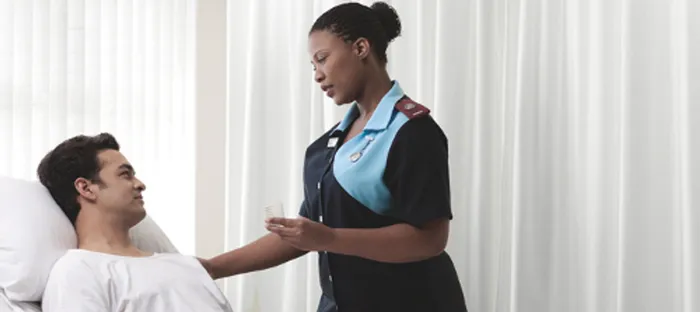Snoring and sleep apnoea

Dr Kevin Rosman is a neurologist at Mediclinic Morningside and has been specialising in sleep medicine for the past 20 years.
Why do people snore?
When we fall asleep the muscles of the upper airways become relaxed. This reduces the size of the airway. If there is any loose tissue at the back of the throat or in the nose, the air rushing past will set up vibrations, which we hear as a snore. Problems in the nose, large tonsils, obesity, alcohol and smoking can contribute to snoring.
Can snoring cause me to stop breathing while I’m asleep?
Snoring doesn’t cause you to stop breathing – stopping breathing causes you to snore. It is called sleep apnoea. When you go into a deep sleep, all the muscles of the body become paralysed. If the shape of your upper airway is ‘wrong’ just when this happens, the airway collapses as you inhale. This will cause you to stop breathing. In turn, this will make you wake very slightly, and as you do so the airway opens up. As the airway opens, the air rushes through, which causes the snore.
Do all people who snore suffer from sleep apnoea?
About half of all snorers have sleep apnoea, the others just make a noise. This noise, incidentally, has been measured to reach levels as high as 120 dB. That’s about the maximum volume reached by a vuvuzela, which is enough to cause hearing loss.
Does snoring mean I don’t sleep well and therefore don’t get enough rest?
Snoring may be an indicator of sleep apnoea. The apnoeas may occur more than 100 times per hour during sleep. Each time an apnoea happens, it pulls you out of a deep sleep. Therefore you never get adequate deep sleep, which is the phase of sleep you really need to get all its benefits. This is an important cause of daytime fatigue. Suffering from severe apnoea affects your alertness and increases your risk for heart attacks.
How can I stop or control snoring? My wife would really like to know!
In mild cases, lying on the side and losing weight may be enough. However, for most patients suffering from sleep apnoea, these won’t help. The precise area of obstruction needs to be determined and then appropriate treatment can be given.
How can sleep apnoea be treated?
The classic treatment is with a CPAP machine. The patient sleeps with a mask over the nose, attached to what is effectively just an air pump. During sleep, air pressure is used to prevent the airways from collapsing. The treatment prevents snores and so allows normal sleep to happen, so that the patient wakes up feeling alert and stops falling asleep during the day.
In mild cases a mandibular advancement device can be used. It’s placed in the mouth and pulls the jaw forward during sleep. This opens up the airway and would help some patients.
Who snores the most: men or women?
Generally speaking, men snore more than women. In this case, size matters. The larger structures around men’s upper airways tend to facilitate airway collapse more easily. We are concerned when a man’s neck circumference exceeds 43 cm, or a woman’s exceeds 40 cm. Also, the female hormone progesterone appears to be a breathing stimulant, which helps to maintain breathing during sleep.
To find out more look here or join us on facebook.
This article was sponsored by Medclinic.
document.write('');
//-->